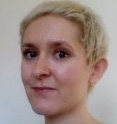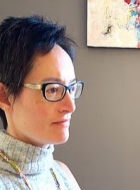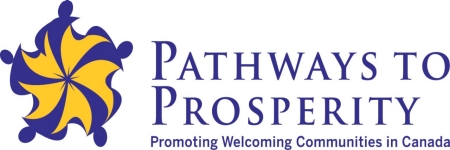Dr. Polly Pallister-Wilkins is an assistant professor in international relations and conflict resolution and governance at the University of Amsterdam. Dr. Pallister-Wilkins specialises in the intersection of humanitarian intervention and border control. Her current research is concerned with "humanitarian borderwork" in Europe and her previous work focused on humanitarianism, border policing and the political sociologies of walls, fences and security barrier in the Mediterranean, specifically Greece, and the Middle East.
The Policy and Politics of Refugee Resettlement in Canada – 3 credits
International Graduate Summer School
This course has ended
July 24 – August 4, 2017
As part of a special initiative started in November 2015, Canada has resettled about 40,000 Syrians either as government sponsored or privately sponsored refugees.
This 3-credit summer school, a collaboration between the Department of Political Science and the School of Community and Public Affairs, builds on the Syrian refugee initiative to explore the policy and politics of refugee resettlement in Canada builds on the Syrian refugee initiative to explore the policy and politics of refugee resettlement in Canada. The high targets set forward by Canada and the capacity of the state to actually implement them point to the particularities of Canada’s approach to resettling refugees. Yet, the story is more complicated and official discourses do not tell us much about the operations and the realities on the ground.
This summer school will provide participants with a first look at the Canadian Syrian refugee initiative, based on the expertise of Concordia researchers, Canadian and international scholars, community actors and government representatives, as well as with the collaboration of international organizations. It will consider implementation challenges, policy implications and situate Canada’s response in a historical and comparative perspective.
Participants will benefit from an interdisciplinary perspective to learn about the major forces generating contemporary displacement, the international instruments and institutions governing refugee movements as well as the settlement and integration processes of refugee groups.
This intensive two-week graduate course will consist of approximately 15 graduate students.
Audience
Canadian and international MA and PhD students, at any stage of their program, are invited to participate. In addition, students that are registered in an MA program to commence in the Fall of 2017 may apply.
Instructors
Dr. Mireille Paquet
Director of the Centre for the Study of Politics and Immigration and Assistant Professor of Political Science
Dr. Chedly Belkhodja
Principal of the School of Community and Public Affairs
Quebec and Canadian researchers, NGO representatives and European researchers will be guest teachers over the two weeks.
The list below is in construction and is updated as often as possible.


Office of the United Nations High Commissioner for Refugees (UNHCR), Canada
UNHCR - the UN Refugee Agency - is the world’s leading refugee agency, providing and coordinating international relief for displaced people at every stage of their ordeal - in emergencies and in long-term camps and settlements - eventually helping them return home safely or rebuild their lives elsewhere.

Immigration, Refugees and Citizenship Canada (IRCC)
IRCC is Canada's federal department responsible for immigrant selection and integration, refugee resettlement as well as for citizenship policy. It is the main agency in charge of the implementation of the Syrian refugee initiative.

Dr. Sule Tomkinson's research combines a theoretical focus on migration management, human rights adjudication, front-line workers, and discretion with a regional focus on North America. Taking an interdisciplinary approach, her research interests are at the intersection of public administration, political science, and migration studies - making connections between different disciplines with the aim of producing research that is both theoretically engaged and policy relevant. Dr. Tomkinson's scholarship takes law as a social force, among others, that shape and constrain migration decision-making.

Dr. Mireille Paquet studies public policies for immigrant selection and immigrant integration in Canada and in other traditional immigrant-receiving societies. Her current work focuses on the governance of immigration and integration policies in federal regimes (Canada, United States and Australia), with a specific attention to the activism and activities of subnational units. Dr. Paquet is also conducting research on public administration and immigration, and is especially interested in the role of public servants in the formulation of immigrant selection policies.

Dr. Chedly Belkhodja is a professor and the principal of Concordia’s School of Community and Public Affairs. Until recently he was the director of the Atlantic Metropolis Centre and he is currently a Co-Investigator in the pan-Canadian Pathways to Prosperity Social Sciences and Humanities Research Council (SSHRC) Partnership. His research centers on immigration policies and on mobility, with a focus on non-traditional destinations. Dr. Belkhodja’s recent contributions have included work on death and immigration as well as international students in Canada.

Dr. Laura Madokoro’s research explores various facets of the history of refugees and humanitarianism. She is especially interested in questions relating to settler colonialism, human rights and race. Dr. Madokoro is the author of Elusive Refuge: Chinese Migrants in the Cold War (Harvard University Press, 2016), which considers the history of migration and resettlement for Chinese refugees to the white settler societies of the United States, Canada, Australia, New Zealand and South Africa

Dr. Howard Ramos’ research investigates issues of social justice and equity. He has published on social movements, human rights, Indigenous mobilization, environmental advocacy, ethnicity, race, and Atlantic Canada. He is currently working on projects looking at Atlantic Canadians and the integration of immigrants and refugees.

Nadia Naffi is a PhD candidate in Educational Technology at Concordia University and a part-time teaching faculty at the University of Ontario Institute of Technology (UOIT). Her research focuses on the influence of social media on the process of integration of Syrian refugees. She developed a refined methodology to engage in conversations with members from host societies about the sensitive and controversial issues related to the social inclusion of refugees based on constructivist psychology. Nadia Naffi is also a Concordia Public scholar for 2017-2018.
Every day, mornings and sometimes early afternoon will follow a lecture format, with ample opportunity for participation. Afternoon will be dedicated for mentoring sessions with invited professors, small-group seminars and individual research. Course members will receive their reading packages digitally in July, and they will be expected to arrive ready to discuss this material. In addition, field trips in Montreal will take place during the summer school. These will provide students with access to some settlement and immigrant serving organizations, as well as with a different look at some local challenges.
Application and funding cycles are closed
Canadian students are eligible for a competitive $500 CAD scholarship to cover a portion of their participation costs.
International students are eligible for a $2,000 CAD scholarship to cover a portion of their participation costs.
In addition, international students will receive free accommodation at Concordia University’s residences.
Application and funding cycles are closed.
In relation to the course’s objectives, we will welcome students from Canada and from abroad.
The admission will be competitive and will be based on research interests, research in progress (when relevant) and applicants’ overall research potential.
Interested students are invited to submit an application package including:
- A statement outlining their motivation for the school, their research interests and any other relevant information (max. 750 words)
- A CV
- Undergraduate and graduate transcripts
- The name and contact information of one academic reference
The deadline to apply is April 20, 2017.
Admission decisions will be announced by May 15, 2017.
Application packages and queries should be directed to: cipe.cepi@concordia.ca
Questions about the syllabus should be directed to: mireille.paquet@concordia.ca
For Quebec residents: $351.27 CAD
For Canadian non-Québec residents: $841.23 CAD
For France-based Masters and PhD students: $841.23 CAD
For international MA and PhD students: $1,712.76 CAD
*International students must purchase Health Insurance through Concordia’s International Student Office (ISO) at a cost of $183.16 CAD
*Students that have never taken a course at Concordia University must pay $25.00 CAD New Student Fee
*In addition, students that are not previously registered at Concordia will need to obtain a Student Identification Card at a cost of $11.50 CAD.
If you cannot find what you are looking for, please email us.
- Can I get credit for this course?
Yes, but if you are not registered at Concordia, contact us and we will work with you to provide you with all the information your home institution requires
- What is the course code?
- Is there a syllabus?
- Can I apply for more funding?
- What is the language of instruction?
The language of instruction is English.
Le cours se déroule en anglais. Les exposés magistraux et les lectures seront en anglais. Les professeurs responsables lisent et parlent le français. Les étudiants pourront faire leurs travaux écrits en français.
- I am about to start a MA or a PhD at Concordia. Can I apply to the summer school?
Yes, you can. Please contact us at cipe.cepi@concordia.ca for more information about how to proceed.





